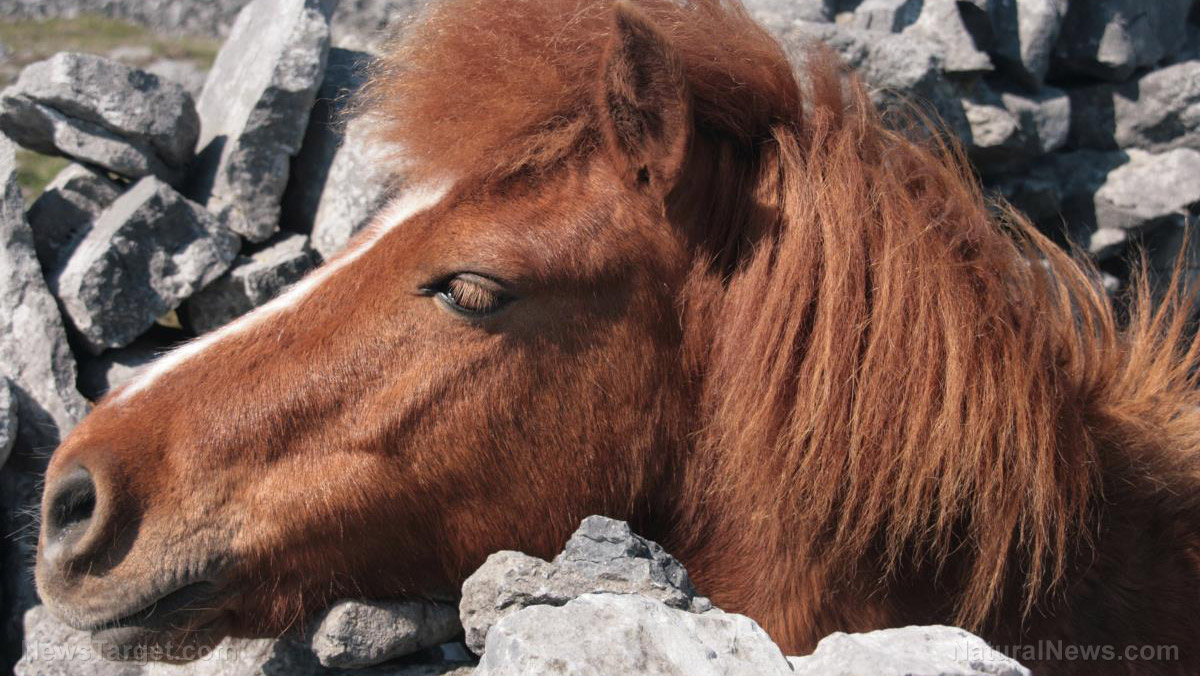Early anthrax cases linked to horsehair shaving brushes, researchers find
01/28/2019 / By Frances Bloomfield

Did fastidious grooming habits lead to men getting more than they bargained for? The rise of anthrax cases during the First World War may be due in part to one innocent grooming tool, researchers claim. In their study, published in the May 2017 issue of Emerging Infections Diseases, the research team from the Centers for Disease Control and Prevention (CDC) found a surprising link between anthrax and men’s shaving brushes made from imported horsehair.
Christine M. Szablewski and her colleagues found this information by reviewing summaries of medical case reports and disease outbreaks. While going through the medical case reports, the researchers identified 43 cases of of anthrax connected to shaving brushes. They noted that 41 of the cases occurred between 1917 and 1923, and that 84 percent of the patients were American. Poring through outbreak summaries from 1915 to 1924 yielded similar results. They found 149 shaving-brush-related anthrax cases among members of the American military, 50 cases among British civilians, 28 cases among members of the British military, and 17 cases among American civilians.
According to the researchers, the cause of the “mini epidemic” can be traced back to the First World War itself.
“The use of chlorine gas in 1915 and mustard gas in 1917 led to the provision of two million ‘khaki kits’ with safety razors to American troops in 1918 because it was believed that gas masks would be more effective on clean-shaven soldiers,” the researchers stated in the study.
During that time, the most popular type shaving brush was made from badger hair because of its ability to retain water. However, wartime efforts greatly disrupted commerce and made it difficult to acquire badger hair from Russia, its main exporter back then. The researchers also noted that the animal hair would be disinfected in France or Germany before being shipped to the United States. With war underway, horsehair—used to create imitation badger brushes—was shipped directly from Russia, China or Japan.

Public health officials at the time speculated that the manufacturers simply used the bundles of horsehair as received and assumed they had been disinfected. They also believed that manufacturers avoided subjecting lighter-haired brushes to high-temperature disinfection to prevent discoloration that might “might diminish their resemblance to badger hair.”
The connection between horsehair and anthrax was “not surprising”, according to the researchers. Herbivores have been documented as more prone to anthrax than omnivores. In addition, modern information on anthrax in American livestock stated that “horses were more frequently affected.” It’s probable that the hair used in some of the shaving brushes were taken from horses who died of anthrax.
“This historical information is relevant to current public health practice because renewed interest in vintage and animal-hair shaving brushes has been seen in popular culture,” wrote the researchers. They noted that modern decontamination processes and stricter regulations on imports have made it highly unlikely for anyone to contract anthrax from animal-hair shaving brushes. Used, vintage brushes have also been confirmed as unlikely sources of anthrax.
The researchers did caution against unused vintage brushes, however. Based on their findings, they discovered that the anthrax cases that had been linked to shaving brushes often involved new brushes. Disinfecting vintage brushes has also been warned against because of the risks of the process. Using steam, pressure and formaldehyde to sterilize the brushes would cause more harm than good.
You can read more about real history at RealHistory.news.
Sources Include:
Submit a correction >>
Tagged Under:
anthrax, history, horsehair shaving brushes, infections, infectious disease, medical history, research, shaving brushes
This article may contain statements that reflect the opinion of the author





















